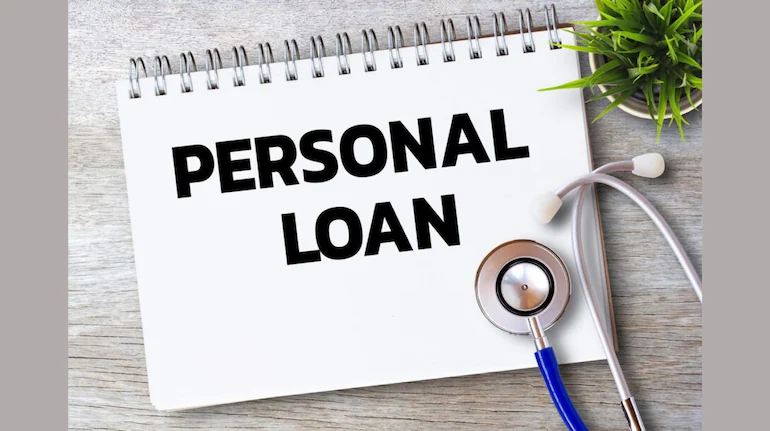What You Should Know Before Taking Out a Personal Loan

Taking out a personal loan can be a helpful way to access money for a variety of needs, such as paying for unexpected expenses, consolidating debt, or financing a big purchase. However, before you borrow, it’s important to understand how personal loans work and consider whether they are the right choice for you. This article will guide you through what you should know before taking out a personal loan, step by step.
What Is a Personal Loan?
A personal loan is a type of loan you can borrow from a bank, credit union, or online lender. It provides you with a lump sum of money that you agree to pay back over time, typically with fixed monthly payments. Personal loans are usually unsecured, which means you don’t need to provide collateral like a car or house to get the loan.
These loans can be used for various purposes, including:
- Paying medical bills
- Covering wedding expenses
- Consolidating high-interest credit card debt
- Funding home improvements
Check Your Financial Situation
Before applying for a loan, take a close look at your financial situation. Ask yourself the following questions:
- Do I really need this loan, or can I save up instead?
- Can I afford the monthly payments?
- Will this loan help me in the long term?
If you’re already struggling to make ends meet, a personal loan might not be the best solution. Borrowing money you can’t afford to repay could lead to financial problems.
Understand the Interest Rate
The interest rate is one of the most important aspects of a loan. It’s the cost you pay to borrow money, expressed as a percentage. Here are some key points about interest rates:
- Fixed Rates: Stay the same throughout the loan term, so your payments are predictable.
- Variable Rates: Can go up or down over time, which may affect your payments.
A lower interest rate means lower overall costs. Your credit score plays a big role in determining the interest rate you’ll be offered. Higher credit scores generally qualify for lower rates.
Consider the Loan Term
The loan term is the time you have to pay back the loan. Terms can range from a few months to several years. Here’s what to keep in mind:
- Short-Term Loans: Higher monthly payments but lower total interest costs.
- Long-Term Loans: Lower monthly payments but higher total interest costs.
Choose a loan term that fits your budget without stretching your finances too thin.
Understand All Fees and Costs
Many personal loans come with extra fees that can add to your costs. Common fees include:
- Origination Fee: A fee for processing your loan, usually 1-6% of the loan amount.
- Late Payment Fee: A penalty for missing a payment.
- Prepayment Penalty: Some lenders charge a fee if you pay off your loan early.
Read the loan agreement carefully to understand all the costs involved.
Shop Around and Compare Lenders
Don’t take the first loan offer you receive. Different lenders offer different terms, interest rates, and fees. Compare offers from banks, credit unions, and online lenders to find the best deal. Online comparison tools can make this process easier.
Check Your Credit Score
Your credit score is a major factor in determining whether you qualify for a loan and what interest rate you’ll get. A higher score can save you thousands of dollars in interest over the life of the loan. You can check your credit score for free through many financial services websites. If your score is low, consider improving it before applying for a loan.
Know Your Monthly Payment
Before signing the loan agreement, make sure you know:
- The exact amount of your monthly payment
- When payments are due
- How long you’ll be paying
Use a loan calculator to estimate your monthly payment and ensure it fits your budget. Missing payments can hurt your credit score and lead to additional fees.
Understand the Risks
Taking out a personal loan comes with risks, such as:
- Falling into a debt cycle: Borrowing more money to pay off old debts.
- Damaging your credit: Late payments can hurt your credit score.
- Overborrowing: Taking out more money than you need can lead to financial strain.
Be realistic about what you can afford and only borrow what you truly need.
Explore Alternatives
Before committing to a personal loan, consider other options:
- Savings: Can you use your savings instead of borrowing?
- Credit Card: A 0% APR credit card may be a better option for short-term needs.
- Family or Friends: Borrowing from loved ones may save you interest, but handle it professionally to avoid relationship strain.
- Budget Adjustments: Cutting expenses might free up the money you need without borrowing.
Final Thoughts
Taking out a personal loan can be a smart financial move, but only if you fully understand the terms and costs involved. Always do your research, compare offers, and ensure you can afford the loan before committing. Remember, the goal is to improve your financial situation, not make it worse.
If you’re careful and informed, a personal loan can be a valuable tool for achieving your financial goals.



